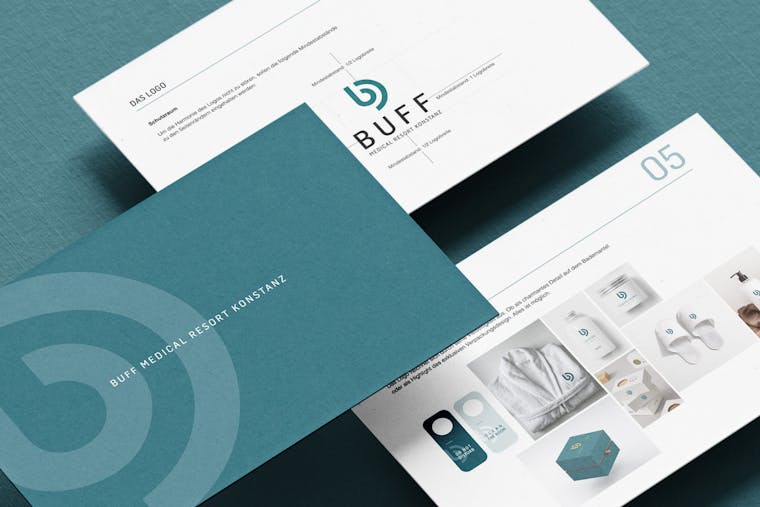Brands drive sales
Our brand consultancy – because strong brands are more profitable
In the area of B2B, it is currently assumed that the brand has an overall influence on the purchase decision of around 20-25 percent. A strong brand reveals its strength primarily by giving employees in the buying centre a higher degree of certainty in their decision and by making a stronger case to justify investment decisions to management. Furthermore, brand communication is more effective in achieving a high level of recognition, especially in new markets.
Your contact to our brand consultants



in favour of a long-term, in-depth strategy
Brand management in the digital age
The attention that companies pay to brand management and the manner in which they understand a brand vary greatly. Especially in B2B marketing, everyday life is dominated by questions of product development, distribution and pricing on the one hand, and on the other, the handling of full order books and the manifold projects in the course of digital transformation. Brand is then created mainly by doing.
The conscious reflection and control of brand management is often only weakly developed. And this despite the findings of neuro-marketing and cognitive psychology (e.g. Nobel Prize winner Daniel Kahnemann: Quick thinking, slow thinking. Munich 2012) the awareness is growing that purchasing decisions are often pre-decided or at least strongly influenced by the unconscious. In contrast to consumer marketing, where the influence of the brand on the purchase decision is many times higher, depending on the segment, research estimates that in B2B business the brand has a share in the range of 20-25%. A strong brand unfolds its strength above all by giving the people in the buying centre greater certainty for their decision and by making it easier to justify the decision to invest to management. Moreover, there is sometimes a certain pride of ownership and the feeling of doing good for one’s colleagues and employees with a good brand, giving them recognisably good working tools.
In the case of strongly export-oriented companies, there is an additional benefit of a well-managed brand: With the support of targeted communication measures, it is easier for it to be noticed and recognised in new markets. With the strategic consistency and creative inspiration of an advertising agency, it builds up awareness and profile more quickly. Even in the digital age, the specialist media, with their campaigns and continuous PR, play a key role here, as current market research and industry discussions clearly indicate. The highly fractionalised digital channels and One2One marketing do not, or hardly ever, achieve this. Brands need a broad public perception and large formats for their development.
However, the interactive functions of digital communication have made brand management aware that there is an important dimension in the type and intensity of interaction possibilities for brands – a dimension which, if you look at the very similar design of many websites, is often considered more important today than the appearance of the brand. What role does the brand play in the everyday environment of the target groups? How close is the relationship? Does the brand include me in its processes? Can I become part of the story the brand tells? How do I experience the brand across all touchpoints? Such issues have become more important in many cases.
Relationship marketing, which was designed at the end of the 1990s, is back in business today under new technological possibilities. Whether as a service, as a community offer, as a cultural offer or as an offer of meaning. It is no longer what a brand pretends to be, but what it actually means to us in everyday life that is decisive. Brand management in the network economy means navigating through networks of meaning and taking advantage of their opportunities – also with the help of data analysis. Transaction marketing and brand management that puts products and their unique customer benefits in the foreground was and is only one side of the coin, especially in market segments with mature products.
Especially in the current start-up fever triggered by digitalisation, it would be advisable in the B2B context to involve brand experts from the very beginning to ensure that a high degree of stringency is created across all dimensions of the new brand, and that the perception and needs of the target group are uniquely taken into account. This may help avoid excessive marketing efforts from the outset. How realistic it is that many new products are “transformational” products, which, via viral effects and a strong benefit, do their own marketing right along with them, as Matthias Schrader postulates that this is marked with a question mark.
Our services
Strategy
- Brainstorming and strategic consulting for the development of new products, product categories, services and brands
- Continuous consulting in international brand management through our advertising agency in Stuttgart
- Consulting and conceptual support in the design of the brand architecture such as umbrella brand strategy, corporate brands, product brands
- Developing brand definitions and a brand identity through a series of brand workshops (brand core analysis would be another term for this). What makes your brand attractive, what is its appeal based on? We are happy to use the methodology of archetype analysis
- Brand positioning and brand territory: In order not only to be aware of the sender’s side, we as an advertising agency like to work together with market research institutes to collect the relevant dimensions and insights for the target groups
- Employer branding: Formulation of the brand in the direction of employees and applicant market (see also separate microsite)
- Development of the deeper meaning of a company, purpose development
Coaching
- Brand and leadership: Strengthening of the management through the “an idea takes the lead” concept
- Brand and sales: Development of a brand academy incl. train-the-trainer concepts, especially for sales, sales partners and other people in customer contact, sustainable increase in turnover through storytelling or reference to the brand core story
Realisation
- Review and optimisation of the brand experience at all relevant touch points
- Name development
- Branding, logo development, corporate design
- Claim and slogan development
- Brand in space: Concepts for trade fairs and exhibitions, as well as showrooms and foyers
- Brand and architecture: Brand-suitable office and industrial buildings in collaboration with structural engineering architects
- Brand and product design: Development and improvement of product and machine design in collaboration with product designers
- Derivation of core messages for content marketing
Our strength
As a consistently interdisciplinary agency, we view brands from many different perspectives. We continuously support our clients on various levels and have realised countless projects. We apply this extensive practical experience in consulting, concept development and implementation. Brand consulting with the Ruess Group increases your success.
Brand management
Lassen Sie uns Ihre Fragestellung und Ihre Zielsetzungen zukommen. Gerne bereiten wir uns auf ein erstes Kennenlerngespräch fundiert vor.






